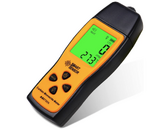My wife and I recently read a story from a FaceBook page called Scuba Accidents and Risk Management Techniques for Divers. In that article, they refer to a possible CO poisoning. They did make reference to a new nitrox detector that they DM on the dive was struggling to use. I don't know if it was O2 toxicity or CO poisoning. I have a O2 detector I am well very used to using. I am wondering if having a CO detector is over kill or if I should actually get one. I would like to know the following from the wealth of knowledge here:
A) is it necessary?
B) Which brand/manufacturer should I think about purchasing?
I am a DM and assistant instructor as well as a critical care paramedic in Missouri for 18 years and my wife is a master diver, critical care and cardiovascular nurse with 35+ years experience. We are both rescue certified. We really do not want to work a code in a foreign country. The closest we have come to this is a syncopal episode (near or total fainting) in a resort in Mexico.
A) is it necessary?
B) Which brand/manufacturer should I think about purchasing?
I am a DM and assistant instructor as well as a critical care paramedic in Missouri for 18 years and my wife is a master diver, critical care and cardiovascular nurse with 35+ years experience. We are both rescue certified. We really do not want to work a code in a foreign country. The closest we have come to this is a syncopal episode (near or total fainting) in a resort in Mexico.




